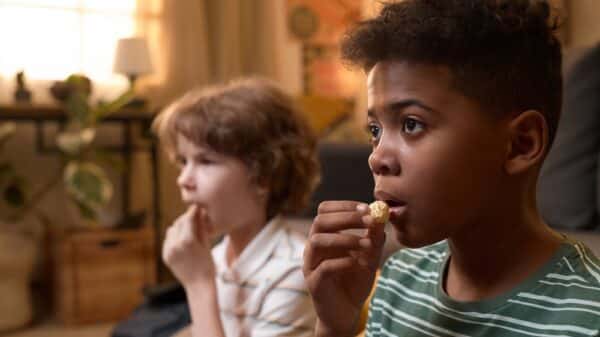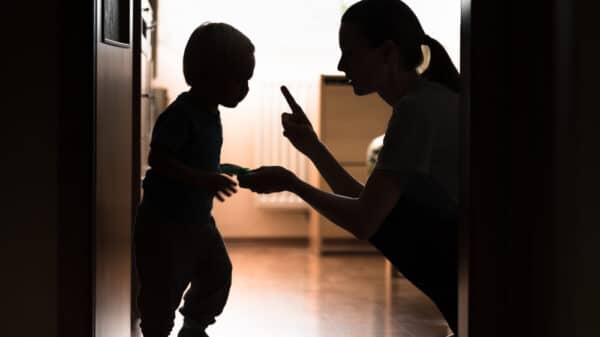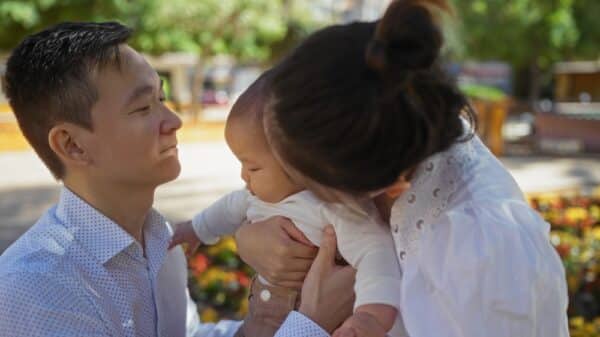Before those adorable little beings enter our lives, many of us paint a perfect picture of how parenting will unfold. Imagine proclamations like—“No screens until they’re 18!” or “Absolutely no high-fructose corn syrup in this house!” The ambitious lists continue: wooden toys only, immersive French lessons by age three—after all, who’s more of an expert on parenting than someone without children? However, as soon as those little miracles arrive, we quickly realize that executing these grand plans often feels like trying to carry water in a sieve. But let’s not forget that guiding our kids to become compassionate, respectful humans can sometimes require less effort than concocting the perfect kale and quinoa dish.
In a relatable moment, TikTok creator Julie Wise recently shared a delightful approach she’s taken with her daughter, Rose, who has a charming tendency to ask for permission for the most unexpected activities. “You might have noticed that Rose will ask me for permission to do very random things,” Wise explains. “I want to tell you why she does that and how I got her to start doing that. Trust me, it’s really simple and super effective for both reassuring her and redirecting her without triggering an emotional meltdown.”
And let’s be honest—who among us hasn’t been there? The parenting struggles are real, and understanding the dynamics of communication with our toddlers can feel like trying to decode an ancient script. So, what’s her secret?
Throughout the day, Wise engages Rose by asking for her permission to do straightforward, inconsequential things. For instance, before picking her up, she’ll casually inquire, “Can I pick you up?” If Rose responds with a “no,” Wise doesn’t make a fuss about it. She’s intentionally chosen this approach to foster a sense of respect around consent, so when she needs to say “no” to Rose, it doesn’t feel like a big deal either.
Imagine this: You’re yearning for a hug from your little one. Instead of diving in for a bear hug, you ask, “May I give you a hug?” And if they shake their head, it’s okay. The hug can come later. This is all about creating small, everyday moments of connection without any pressure or disappointment. Wise emphasizes, “You’d never pose a monumental question like, ‘May I throw you into this lifeboat as we watch the ship sink?’ That’s something you instinctively just do—it’s a matter of safety!”
What’s more, this technique is beneficial for toddlers, giving them a sense of control over their own bodies and allowing them to grasp the basics of consent early on. It’s about making them feel empowered and respected.
“So throughout your day, find trivial matters where your opinion doesn’t really matter that much … and ask your toddler for permission,” Wise concludes. “I promise you: if you do this consistently, they will start to ask you for your permission too, and it will be a game changer.”
Others were quick to chime in, sharing their experiences and thoughts in the comment section. “Model the behaviors you want to see!” one enthusiastic commenter exclaimed. Another joked, “You mean treating her like a human with the ability to refuse consent? I really wish more adults practiced this, but unfortunately, they don’t see kids as humans.” A third echoed this idea, recalling their time as a preschool teacher, “Kids mimic 100% of what you do. I had my three-year-olds expressing gratitude to each other for saying ‘please’ and ‘sorry’ just because I took the time to thank them for the same.”
Navigating parenthood is no cakewalk, but some aspects might be simpler than we initially think. Building the behaviors we desire in our children can often boil down to modeling what we preach. It’s about taking those everyday opportunities to teach them how to ask for what they want respectfully—and sometimes, it means embracing the chaos and imperfections that come with this beautiful journey. We’re all in this together, and small steps can make a monumental difference.
Image Source: LightField Studios / Shutterstock



































